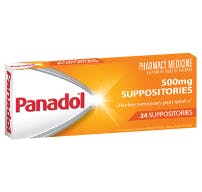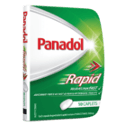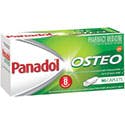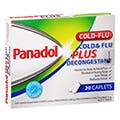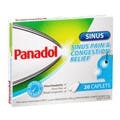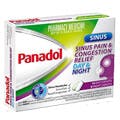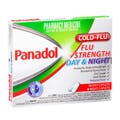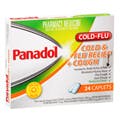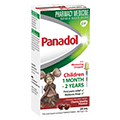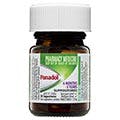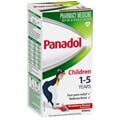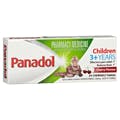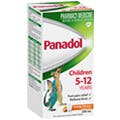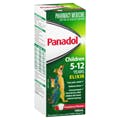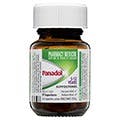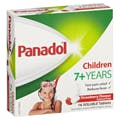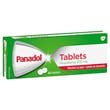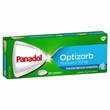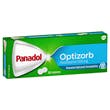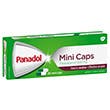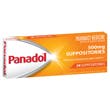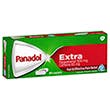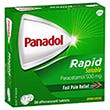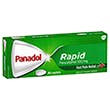

Colourfree Baby Drops 1-2 Months

Colourfree Suspension 1-5 Years

Chewable Tablets 3+

Suppositories 6 Months - 5 Years

Colourfree Suspension 5-12 Years

Elixir 5 - 12 Years

Suppositories 5-12 Years

Soluble 7+

Panadol Tablets

Panadol Caplets with Optizorb Formulation

Panadol Tablets with Optizorb Formulation

Panadol Gel Caps

Panadol Mini Caps

Panadol Suppositories

Panadol Back & Neck

Panadol Extra Caplets

Panadol Rapid Soluble

Panadol Rapid Caplets

Panado Rapid Handipak

Panadol Back & Neck Long Lasting

Panadol Osteo

Panadol Cold & Flu + Decongestant

Panadol Cold & Flu - Flu Strength (Day & Night)

Panadol Cold & Flu Relief + Cough

Panadol Cold & Flu MAX Hot Lemon
Compare Now (0/5)
- Product
- Format
- Age
- Key Features
- Ingredients

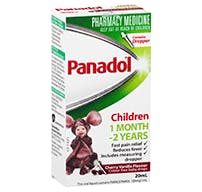
Colourfree Baby Drops 1-2 Months
- Concentrated Drops
- 1 Month - 2 Years
- Gentle on Tiny Tummies
- 500mg Paracetamol
- No gluten, lactose or sugar

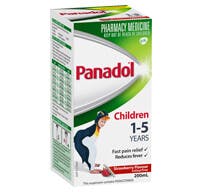
Colourfree Suspension 1-5 Years
- Suspension
- 1-5 Years
- Strawberry/Orange Flavour
- Active Ingredient: Paracetamol 24 mg/mL

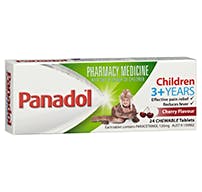
Chewable Tablets 3+
- Dissolvable Tablets
- 1-5 Years
- Perfect For Travel
- Active Ingredient: 120mg of Paracetamol per tablet

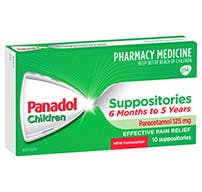
Suppositories 6 Months - 5 Years
- Suppositories
- 6 Months - 5 Years
- For vomiting
- Active ingredient: Paracetamol 125mg per suppository.

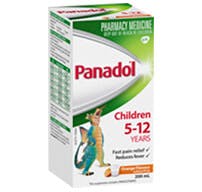
Colourfree Suspension 5-12 Years
- Suspension
- 5-12 Years
- Strawberry/Orange Flavour
- Active ingredient: Paracetamol 48 mg/mL

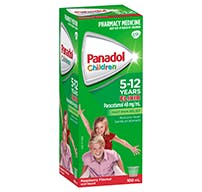
Elixir 5 - 12 Years
- Suspension
- 5-12 Years
- Fast & gentle relief
- Active ingredient: Paracetamol 48 mg/mL

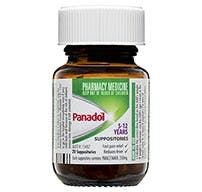
Suppositories 5-12 Years
- Suppositories
- 5-12 Years
- For vomiting
- Active ingredient: 250mg Paracetamol per suppository

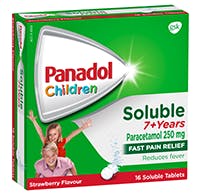
Soluble 7+
- Effervescent Tablets
- 7+ Years
- Absorbed quicker
- Active ingredient: Paracetamol

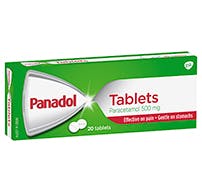
Panadol Tablets
- Tablets
- 12+ Years
- Basic Pain
- Active ingredient: 500mg Paracetamol

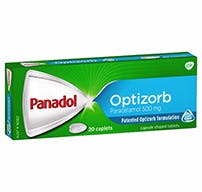
Panadol Caplets with Optizorb Formulation
- Caplets
- 12+ Years
- Quicker Absorbtion
- Active ingredient: 500mg Paracetamol

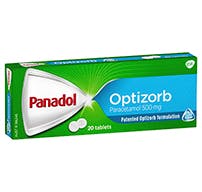
Panadol Tablets with Optizorb Formulation
- Tablets
- 12+ Years
- Quicker Absorbtion
- Active ingredient: 500mg Paracetamol

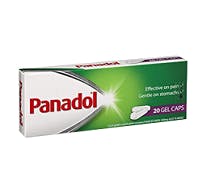
Panadol Gel Caps
- Caplets
- 12+ Years
- Easier to swallow
- Active ingredient: 500mg Paracetamol

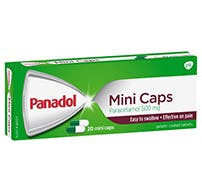
Panadol Mini Caps
- Caplets
- 12+ Years
- Easier to swallow
- Active ingredient: 500mg Paracetamol

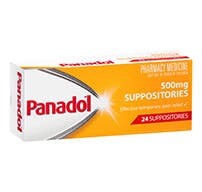
Panadol Suppositories
- Suppositories
- 12+ Years
- For vomiting
- Active ingredient: 500mg Paracetamol per suppository.

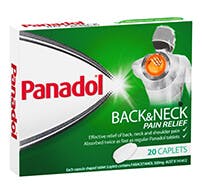
Panadol Back & Neck
- Caplets
- 12+ Years
- Fights Back Pain
- Active ingredient: 500mg Paracetamol

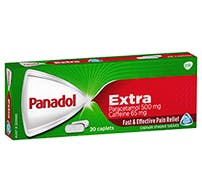
Panadol Extra Caplets
- Caplets
- 12+ Years
- Fight Tough Pai
- Active ingredient: 500mg Paracetamol , 65mg caffeine

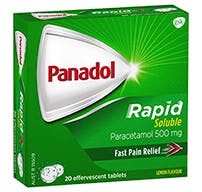
Panadol Rapid Soluble
- Dissolvable Tablets
- 12+ Years
- Absorbed 2x Faster
- Active ingredient: 500mg Paracetamol

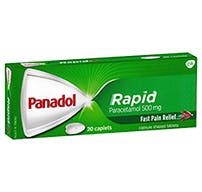
Panadol Rapid Caplets
- Caplets
- 12+ Years
- Absorbed 2x Faster
- Active ingredient: Paracetamol

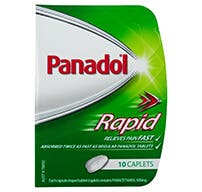
Panado Rapid Handipak
- Caplets
- 12+ Years
- Absorbed 2x Faster
- Active ingredient: 500mg Paracetamol

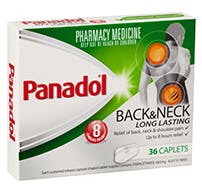
Panadol Back & Neck Long Lasting
- Caplets
- 12+ Years
- Up to 8 hours
- Active ingredient: 655mg Paracetamol

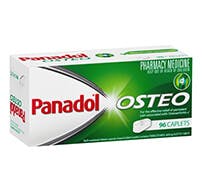
Panadol Osteo
- Tablets
- 12+ Years
- Up to 8 hours
- Active ingredient: 665mg Paracetamol

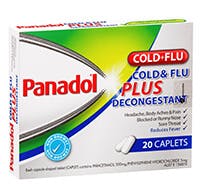
Panadol Cold & Flu + Decongestant
- Caplets
- 12+ Years
- With Decongestant
- 500mg Paracetamol

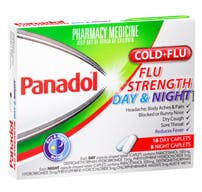
Panadol Cold & Flu - Flu Strength (Day & Night)
- Caplets
- 12+ Years
- Day & Night Relief
- 500mg Paracetamol

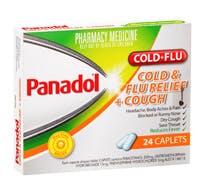
Panadol Cold & Flu Relief + Cough
- Caplets
- 12+ Years
- Cough Relief
- 500mg Paracetamol
Minimise
Postnatal Depression
Postnatal depression most commonly develops between one month to one year after giving birth to a baby.
How common is it?
One in five women develops postnatal depression (PND), and one in ten men can experience it too. It can start slowly or come on very suddenly. The exact causes are still not known, but physical, emotional and social changes contribute to its onset.
One in five women develops postnatal depression (PND), and one in ten men can experience it too.
Types of postnatal depression
- Baby blues. This is common and can affect up to 80% of women. It occurs in the first few days after giving birth and only lasts a day or two. Women feel overwhelmed, tearful and tense. It is thought to be due to the changes in hormonal levels, along with being exhausted. Baby blues don’t need any treatment, except good support and nurturing (like lots of cuddles from your partner).
- True postnatal depression. The onset of this is usually later, around one month or even up to one year after giving birth. It ranges from very mild to severe, and can last for weeks or linger on for many months.
.png?auto=format)

Signs and symptoms of postnatal depression
- Persistent tearfulness and irritability.
- Feelings of being unable to cope.
- Low self-esteem and lacking confidence.
- Difficulty concentrating, or making decisions.
- Changes in appetite.
- Anxiety or panic attacks.
- Feelings of inadequacy.
- Negative thoughts.
- Changes or difficulty with sleep patterns.
- Fear of being alone or going out.
- Fear of being alone with baby.
- Loss of interest in things you usually enjoy.
- Thoughts of harming yourself and/or the baby (see next page).
Every new parent may experience at least one of these symptoms, or more. But if you feel overwhelmed and they worsen or don’t go away, then you may have postnatal depression. If so, you need professional help.
Where to go for help
It is important to get the right kind of help. You can talk it over with your partner or a trusted friend or relative, but often you need professional support. Your doctor or Child and Family Health Nurse is often the first step to getting the help you need.
Postnatal depression not only affects your health and wellbeing, but that of your baby. It can also damage your relationship with your partner and others, as well as your enjoyment of your new baby.
Treatment options
These may include talking with a counsellor or psychologist, who can help you with your negative thoughts and feelings, or joining a support group. Medication may also be recommended to help lift your mood and anxious feelings. If your depression is severe, it would be usual for you to be referred to a Psychiatrist who specialises in postnatal depression.
If you feel like harming yourself or your baby at any time, dial the Emergency line 000, or call the mental health crisis line in your state (see ‘Where to go for help’ at the end of this book).
Helplines
- Beyond Blue – for depression, anxiety and mental health related issues.
Tel: 1300 22 4636 (24 hours) www.beyondblue.org.au - Pregnancy, Birth & Baby Helpline. Tel: 1800 882 436
- Lifeline – crisis support and suicide prevention service. Tel: 13 11 14 (24 hours) www.lifeline.org.au
- Post & Antenatal Depression Association (PANDA): Tel: 1300 726 306 www.panda.org.au








